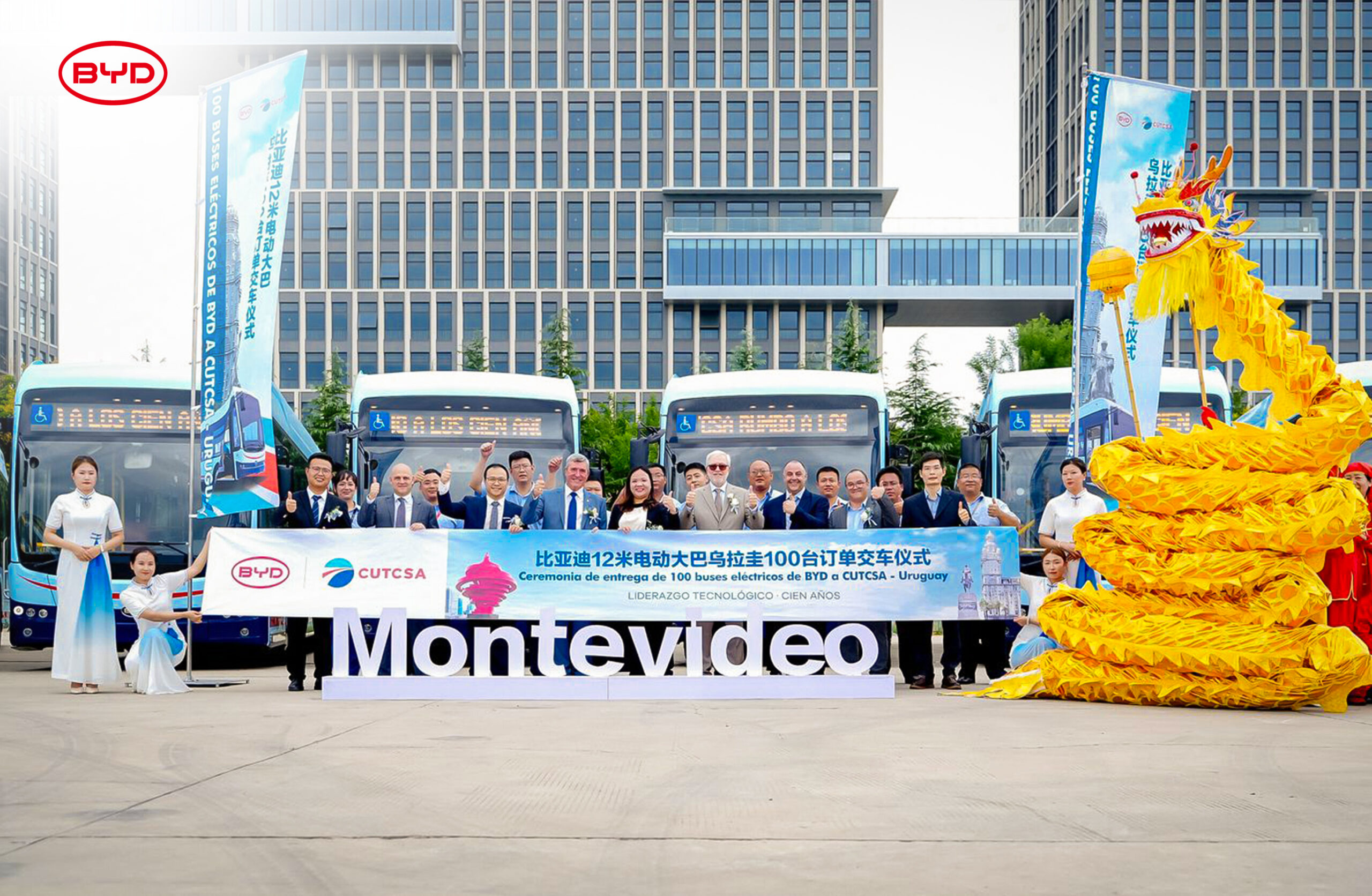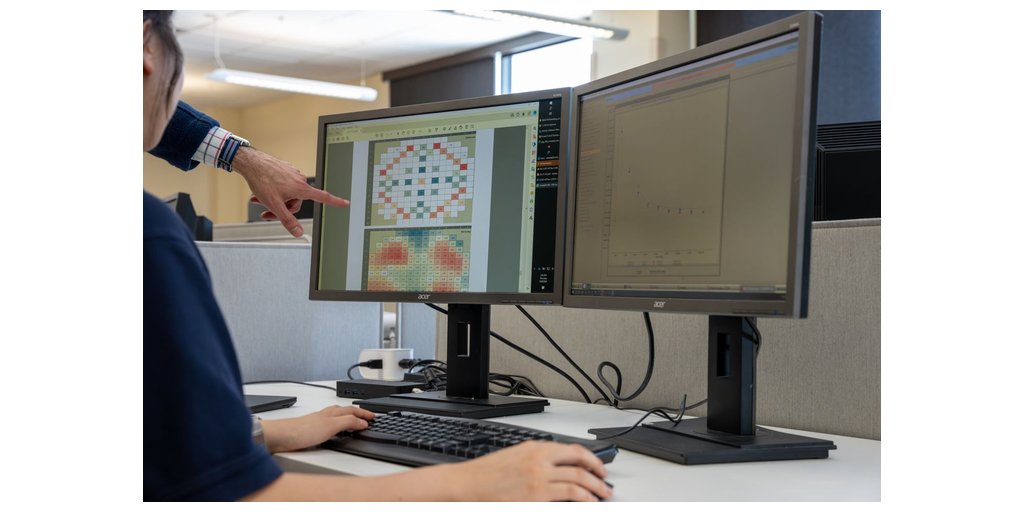Sign up for daily news updates from CleanTechnica on email. Or follow us on Google News!
Everybody loves to love and hate Starbucks, but the ubiquitous purveyor of coffee always seems to have something up its sleeve. The latest move to keep the latte flowing is a new partnership with Mercedes-Benz, aimed at bringing new Italian-designed, made-in-the-USA EV charging stations to select Starbucks locations.
Sleek New Italian EV Charging Stations For Starbucks, Made In The USA
CleanTechnica’s Jake Richardson got the scoop on the Mercedes-Starbucks mashup earlier this week, including some insights from Mercedes about the role of renewable energy in its EV charging plans for North America. Following are some additional details about the firm behind the charging stations, Alpitronic.
Mercedes’ North American branch announced a new collaboration with Alpitronic last month for charging stations in the US. The Italian-based firm has been working with Mercedes-Benz to build out the EV charging station network in Europe.
Apparently Mercedes-Benz has liked what it has seen, and Alpitronic has been laying the groundwork for further collaboration by opening a US branch headquartered in Charlotte, North Carolina.
“Mercedes-Benz High-Power Charging will be the first charging network in the US to deploy Alpitronic’s industry leading Hypercharger 400 at scale with units available to customers beginning Q3 2024,” Mercedes-Benz announced on June 13.
CleanTechnica’s Jennifer Sensiba has taken note of Alpitronic’s EV charging station activity in Europe, but the company has not had a large footprint here on its home turf — until now, that is. Mercedes-Benz is investing $1 billion in its new “High-Power Charging” initiative in the US, and Alpitronic is front and center in the plan.
“Working with Alpitronic is one way that Mercedes-Benz High-Power Charging is localizing its supply chain as part of its $1 billion investment into a North American charging network,” Mercedes-Benz explained. “Together, the two companies are bolstering investment in the clean energy and transportation economy to deliver a fast-charging network capable of supporting EV drivers from all brands.”
The Reliability Conundrum
As reported here at CleanTechnica and elsewhere, the nation’s EV charging station network has experienced plenty of bumps along the road to full build-out. EV makers are beginning to learn that they need to exercise a firm grip on quality control if they really want EV sales to keep growing.
Mercedes-Benz is a case in point. “To unlock this next era of charging, we must bridge the gap in quality and that starts with the customer’s experience at the charger,” explained Andrew Cornelia, the company’s President and CEO.
“We’re proud to partner with Alpitronic who has not only designed a best-in-class product with some of the fastest charging speeds available, but is a company equally committed to investing in America’s clean energy workforce,” Cornelia added.
“In our on-site lab, we rigorously test pivotal semiconductors, the heartbeat of our technology, essential for the efficient energy transfer that powers our Hyperchargers,” Alpitronics says of itself. “Our proprietary test benches and support services further underscore the reliability and performance commitment inherent to the Alpitronic brand.”
The CEO of Alpitronic Americas, Mike Doucleff, emphasizes that his company is a natural fit for a luxury auto brand. “Mercedes sets the standard for luxury and performance, while Alpitronic provides top-tier, elegantly designed EV charging solutions,” he said.
EV Charging Station Deserts, Begone!
Cornelia also emphasized the attraction of a domestically-manufactured product that puts US workers to work. Alpitronic is headquartered in North Carolina, but the Hypercharger 400 is manufactured in Wisconsin.
Meanwhile, Starbucks has spotted an opportunity. The company already counts 1,000 charging stations located nearby its stores, which are accessible to its customers. The collaboration with Mercedes-Benz will enable Starbucks to take it up a level and assure customers of access to charging station locations at the stores themselves.
Starbucks also aims to burnish its reputation by flagging “charging deserts” and certain urban locations for priority installation, beginning with a 1,400-mile stretch of Interstate 5 between Washington State and California.
Bringing The European EV Charging Experience To The USA
It remains to be seen if Mercedes and Alpitronic follow through on the promise of a reliable charging experience, though the German firm E.ON is already convinced. In May of 2023 E.ON announced a plan to install 4,500 additional Alpitronic EV charging stations, ranging from 50 to 400 kw depending on use.
“They cover a wide range of charging needs — from charging at the workplace or while shopping, to ultrafast charging on the highway, to megawatt charging for heavy commercial vehicles,” E.ON explained.
Decisions regarding the physical placement of Alpitronic chargers at Starbucks stores will also come into play. Some EV advocates argued that drivers need to view an EV charging station as an attractive place to hang out, with shade and other amenities, rather than a stump wedged into a parking lot.
EV Sales Are Growing, Regardless Of The Nattering Nabobs Of Doom
The industry consensus is that EV charging station breakdowns and lack of access to online payment systems discourage auto buyers from investing in electric vehicles. That obstacle is falling by the wayside as EV stakeholders transition to more reliable infrastructure. The Biden administration is also lending an assist with funding from the 2021 Bipartisan Infrastructure Law, earmarked for charging station repairs and replacement through the US Department of Transportation.
The Biden administration is also working to build public confidence into the nation’s EV charging station network, with a series of cybersecurity initiatives.
As for the drag on EV sales, that applies mainly to drivers who need to rely on public charging stations. Many other drivers can access reliable charging stations at their own homes. Workplace charging provides another environment that supports access and reliability.
If anything is holding back sales, it’s not the EV charging stations. The up-front cost of an electric vehicle is still burdened by the expense of the battery. EV makers have responded by focusing on the upscale market, characterized by larger SUVs and electric trucks like the Ford F-150 Lightning.
So much for the bad news. On the plus side, battery costs are dropping, and automakers are already planning ahead to introduce more affordable EVs. One such effort that crossed the CleanTechnica radar in recent months is Volkswagen’s Scout Motors venture. While not cheap, Bloomberg foresees the new Scout vehicle closing in on the average cost of a gasmobile in the US, which weighs in at $48,000.
Meanwhile, Ford is still keeping its “skunkworks” affordable EV project close to the vest. If you’ve seen any hints dropped about the cost of the forthcoming EV, drop us a note in the comment thread.
Follow me via LinkTree, or @tinamcasey on Threads, LinkedIn, and Instagram.
Image: Sleek new EV charging stations from the firm Alpitronic are coming to Starbucks stores, with a focus on filling in “charging station deserts” and serving core urban areas (courtesy of Alpitronic).
Have a tip for CleanTechnica? Want to advertise? Want to suggest a guest for our CleanTech Talk podcast? Contact us here.
Latest CleanTechnica.TV Videos
CleanTechnica uses affiliate links. See our policy here.
CleanTechnica’s Comment Policy





